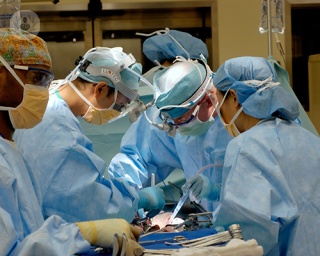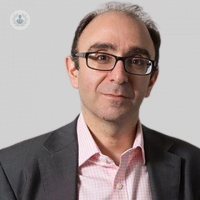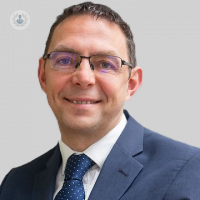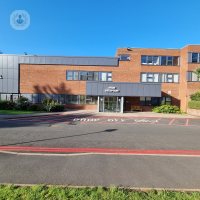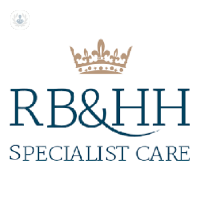Heart valve surgery
Dr Arvind Singh - Cardiology
Created on: 11-13-2012
Updated on: 10-05-2023
Edited by: Conor Dunworth
What is valvular heart surgery?
Valvular heart surgery is a technique used to treat problems or conditions of the heart valves, such as valvular stenosis, which occurs when there is a narrowing or closure of the valve, or valve insufficiency, also known as valve regurgitation, which occurs when the valve doesn’t close properly.

This is an open-heart operation in which the chambers and vessels of the heart are opened. It is performed under general anaesthetic.
There are two ways of addressing this problem through traditional surgery: with a sternotomy, whereby an incision is made in the sternum, or by opening the blood vessel to repair the valve or replace it with a prosthetic valve.
Why is valvular heart surgery performed?
The heart has four valves: the aortic, mitral, tricuspid and pulmonary valves. The function of these four valves is to control the direction of blood flow through the heart.
The main diseases for which valvular heart surgery is indicated are aortic stenosis, mitral stenosis, aortic insufficiency, and mitral insufficiency.
Valvular procedures are aimed at repairing or replacing the mitral valve or aortic valve. Both valves are located in the left side of the heart, which is the part that has to work the hardest since it controls the flow of oxygenated blood from the lungs and carries it to the rest of the body.
What does valvular heart surgery involve?
A heart-lung bypass machine is used in valve replacement or repair operations. You’ll be given an anticoagulant to prevent the formation of blood clots.
After connecting you to the circulation machine, the heart is stopped and cooled. An incision will then be made in the heart or aorta, depending on which valve needs to be repaired. Once the process is complete, the heart is restarted and you are disconnected from the machine.
In some cases the operation may not be effective so another intervention will be required. You should also be aware that a biological valve may need to be replaced within fifteen to twenty years.
If you have a mechanical valve - which can also fail - you will have to take anticoagulants for the rest of your life. If bacteria penetrate the repaired or artificial valve, bacterial endocarditis can develop.
Preparing for valvular heart surgery
Most people who require valve surgery are admitted to hospital the day before the procedure, and in some cases on the day of the surgery itself. You will be asked to shower or have a bath beforehand, to avoid the presence of bacteria on the skin.
At the hospital, your skin will be disinfected with an antiseptic and, if necessary, the area where the incision will be made will be shaved.
You will need to fast before surgery, as this reduces the risk of complications from anaesthetic. If you have eaten or drank anything beforehand, you must inform the anaesthetist and the surgeon.
If you are a smoker, the doctor will ask you to stop smoking at least two weeks before the operation, as smoking can cause coagulation-related problems.
Post-operative care
This type of surgery usually requires a hospital stay of approximately one week. Complete healing may take several months, although the recovery period will vary depending on your health before the surgery.
Following the operation, continuous cardiological monitoring will be required, along with periodic check-ups. You should contact the specialist if you notice any unusual symptoms.
Your medication may need to be changed depending on the type of intervention.
If you have a dental problem or infection, you should contact your dentist and start taking the indicated antibiotics immediately.
Alternatives to valvular heart surgery
The alternative treatment to valve surgery is minimally-invasive percutaneous surgery. Advanced techniques such as videothoracoscopy are used, in which a micro camera is introduced into the thorax to facilitate surgery. Treatments include the HeartPort procedure and percutaneous aortic valve surgery:
- HeartPort: a small incision is made in the mammary fold and extracorporeal circulation is performed through the femoral artery and vein
- Percutaneous aortic valve surgery: this is performed through a catheter inserted into the femoral artery, through which a biological valve is then introduced.


